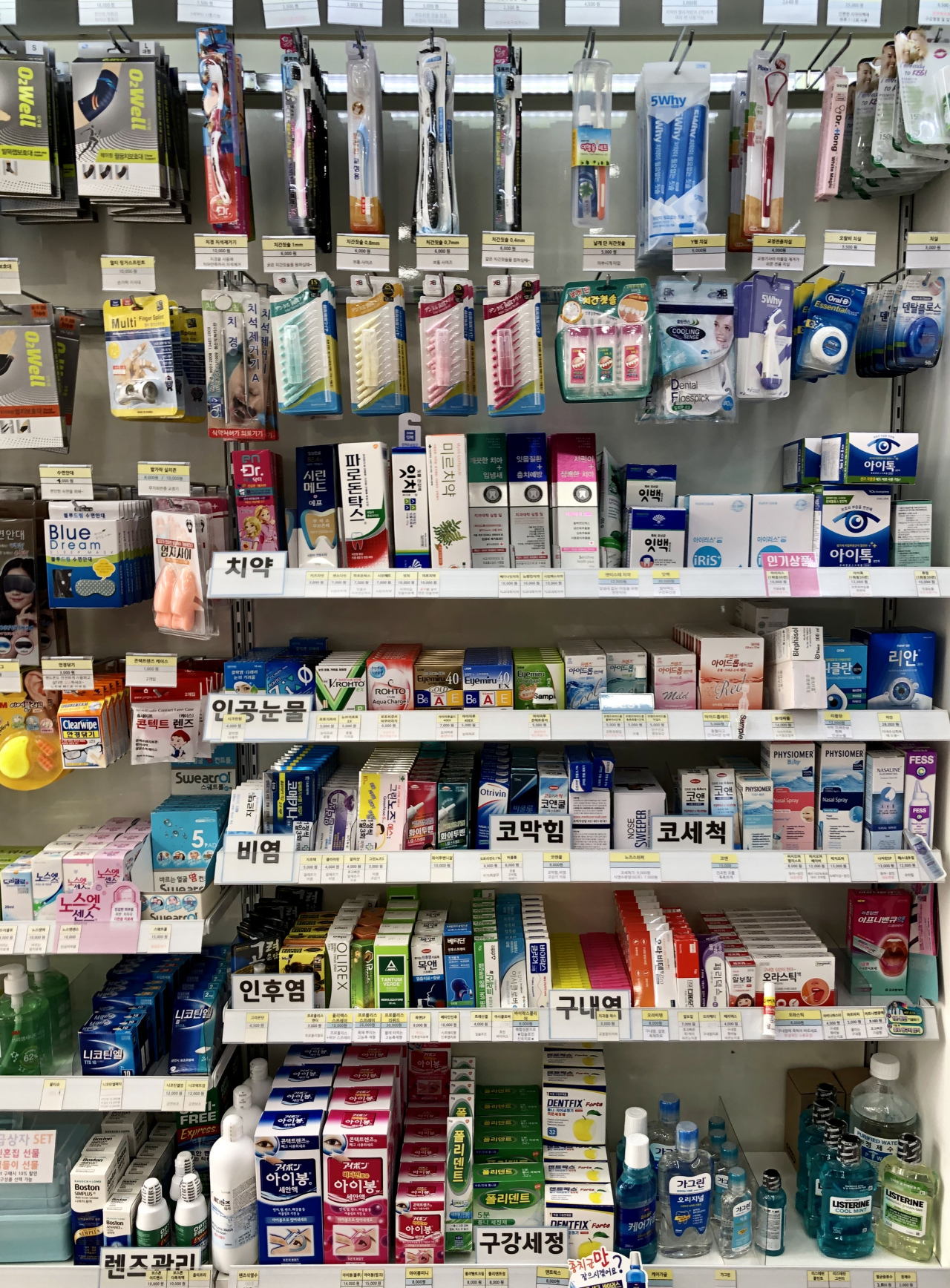Korean pharmacists boycott Japanese OTC medicines
Regional moves to snub Japan yet to reach Seoul
By Lim Jeong-yeoPublished : July 29, 2019 - 17:09
Regional associations of Korean pharmacists are boycotting imported over-the-counter drugs from Japan, recommending Korean alternative products to patients.
Some of the popular Japanese OTC drugs in Korea include: Takeda Pharmaceutical’s fatigue-restoring vitamin Actinium; teardrop solution Rohto; stomatitis treatment Albothyl; cold remedy Whituben; Kobayashi Medicine’s eye-cleaning agent Eyebon; Nichiban’s first-aid bandage Careleaves; and Kowa’s digestion medicine Cabagin.
According to industry sources, the movement against Japanese medicines started in North Jeolla Province in mid-July, spreading to South Gyeongsang Province and Busan City. The local pharmacies have announced resolutions to safeguard Korea’s national interests against Japan’s newly imposed trade restrictions.
Japan in early July announced to strike out Korea from its whitelist of trade partners, in an apparent response to the Supreme Court’s ruling that ordered Japanese firms to compensate the Korean victims of wartime forced labor.
Some of the popular Japanese OTC drugs in Korea include: Takeda Pharmaceutical’s fatigue-restoring vitamin Actinium; teardrop solution Rohto; stomatitis treatment Albothyl; cold remedy Whituben; Kobayashi Medicine’s eye-cleaning agent Eyebon; Nichiban’s first-aid bandage Careleaves; and Kowa’s digestion medicine Cabagin.
According to industry sources, the movement against Japanese medicines started in North Jeolla Province in mid-July, spreading to South Gyeongsang Province and Busan City. The local pharmacies have announced resolutions to safeguard Korea’s national interests against Japan’s newly imposed trade restrictions.
Japan in early July announced to strike out Korea from its whitelist of trade partners, in an apparent response to the Supreme Court’s ruling that ordered Japanese firms to compensate the Korean victims of wartime forced labor.

North Jeolla’s pharmacist association announced on July 18 that it urges all members to refrain from selling Japanese manufactured drugs in light of the developing trade dispute. The association in South Gyeongsang followed suit the next day, calling on Japan to end its vindictive trade restrictions and at the same time urging its members to even cut down on personal trips to Japan. Pharmacists in Busan also called for Japanese Prime Minister Shinzo Abe’s direct apology to the Korean victims of wartime sexual slavery and forced labor.
“(Just like many Koreans) pharmacists, too, feel Japan’s retaliatory trade restrictions are gravely unjust,” Seo Yong-hoon, the chief of North Jeolla pharmacists association, told The Korea Herald, Monday.
“To deliver this sentiment to Japan, centering on younger pharmacists aged between late 30s to early 40s, we have decided to encourage voluntary boycott against Japanese products,” Seo said. Some 1,300 pharmacists are members of the North Jeolla division.
Choi Jong-seok, the chief of South Gyeongsang pharmacists association, echoed the sentiment.
“There usually is a homegrown product that can substitute a Japanese OTC drug. We are compiling a relevant list so that when a member pharmacist asks what alternative he or she can give a patient, we can offer immediate help,” Choi said. As pharmaceuticals are treated as public goods, the boycott is carried out within the legally permitted boundaries, Choi added. Some 2,000 pharmacists are with the South Gyeongsang division.
The anti-Japanese movement is yet to catch up in Seoul, however, as many on Monday still placed Japanese imported tear solutions, dental products and pain relief plasters on front shelves.
A pharmacist operating in Seodamun-gu, Seoul, told The Korea Herald that she hardly feels any impact of the trade rift with Japan as her sales are mostly of prescribed medicines and not OTCs.
“We sell what the doctors prescribe, for which we don’t get to decide if they should be Japanese or Korean (medicines),” said a pharmacist, who preferred not to be named. Her OTC product shelves highlighted Japanese items as foreign imported goods with higher price tags.
Drugs that require a doctor’s prescriptions have so far been largely untouched by the trade dispute.
“When it comes to patient health care, it isn’t easy to change prescriptions due to political disputes,” said a Korean Medical Association representative.
An industry insider with knowledge of the matter said that the decision, in the end, rests with the consumers.
“The Japanese medicines that are popular in Korea only became so after social media influencers introduced them as must-have souvenirs,” he said, explaining the buying power of patient preference over pharmacists’ control over the market.
“Also, an association cannot force individual pharmacists to follow its movement,” he added.
By Lim Jeong-yeo (kaylalim@heraldcorp.com)







![[KH Explains] Hyundai's full hybrid edge to pay off amid slow transition to pure EVs](http://res.heraldm.com/phpwas/restmb_idxmake.php?idx=644&simg=/content/image/2024/04/18/20240418050645_0.jpg&u=20240419100350)






![[From the Scene] Monks, Buddhists hail return of remains of Buddhas](http://res.heraldm.com/phpwas/restmb_idxmake.php?idx=652&simg=/content/image/2024/04/19/20240419050617_0.jpg&u=20240419175937)

![[KH Explains] Hyundai's full hybrid edge to pay off amid slow transition to pure EVs](http://res.heraldm.com/phpwas/restmb_idxmake.php?idx=652&simg=/content/image/2024/04/18/20240418050645_0.jpg&u=20240419100350)

![[Today’s K-pop] Illit drops debut single remix](http://res.heraldm.com/phpwas/restmb_idxmake.php?idx=642&simg=/content/image/2024/04/19/20240419050612_0.jpg&u=)